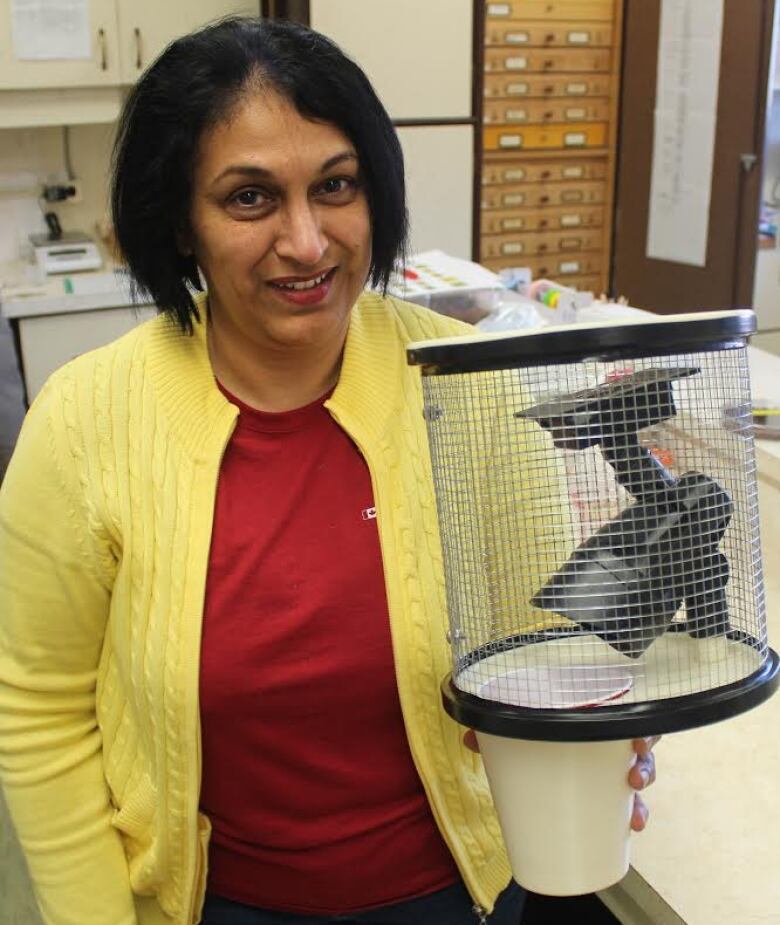P.E.I. farmers give new wireworm trap tentative thumbs up
'It's not going to be the complete answer, but it's certainly going to be a start'

P.E.I. potato farmers gave a new wireworm trap a tentative thumbs-up at an information session Monday.
The trap is called the Noronha Elaterid Light Trap, or NELT, and was designed by Agriculture Canada Entomologist Christine Noronha in P.E.I.
Shining a small solar-powered spotlight into a plastic cup set into the ground proved to attract and drown hundreds of female click beetles, which give birth to thousands of potato-munching wireworms.
"It's like another tool in our box," said Alec Docherty, chair of the PEI Potato Board.
"It's not going to be the complete answer, but it's certainly going to be a start."

Wireworm has spread and evolved to become public potato enemy number one in the last few years, causing more than $6 million in damage to the Island's potato crop alone, so Docherty said he's sure farmers will jump on board and start using the traps as soon as possible.
"It's not an overnight fix, it's a long-run fix," Noronha emphasized as she outlined the finer points of the trap to a packed audience of farmers at Charlottetown's Red Shores Racetrack.
Farmers can make their own trap for about $12
"The manufacturing [of the traps] is a year away," she said, but pointed out the design is so simple and cheap, farmers can make their own right away. She estimates the cost of one trap at about $12.
"The reason why I released the information to the farmers now, before we have the actual traps ready for them, is the populations are so high, and if we don't start now, we're going to lose a year of trapping," Noronha said.
The click beetle has a five-year life cycle, she points out, so the more quickly it's interrupted, the sooner the source population can be reduced.
"Farmers can see that there needs to be cooperation and everybody needs to get onto this to reduce that population down as much as we possibly can," she stated passionately.

It's going to be a challenge to get the pest under control, she said, noting there are very few crops wireworms don't damage.
"If you don't do anything, [P.E.I. is] just going to be taken over by click beetles!"
Research continues
Noronha plans to continue her research the next couple of years, looking at how many traps farmers might need per field and the reach of each trap.
Last season, Docherty said he was unable to harvest one variety of potatoes after it was decimated by wireworm.
"It was just completely devastated," he said.
The insects dig holes in potatoes as they grow, making them unfit for sale. They're a problem across the country, although worst in P.E.I., Alberta and B.C. according to the PEI Potato Board.
With files from Stephanie Kelly